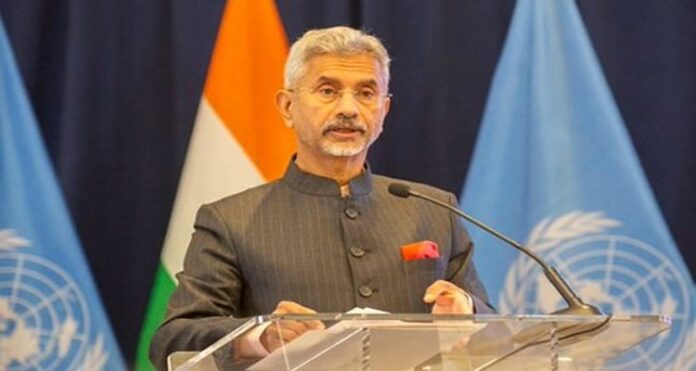| Translate This News In |
|---|
S. Jaishankar, the minister of external affairs, stated on Wednesday that India and China will continue to have a relationship based on “mutual” sensitivity, respect, and interest. S. Jaishankar made the statements in response to a query regarding Beijing’s repeated assertions that relations between the two nations are “good”. S. Jaishankar, who is in the US to attend the just-completed UN General Assembly, is currently in Washington, where he met with Antony Blinken, his American counterpart, and other top Biden Administration officials.
The two sides have transitioned from the “emergency response” that followed the conflict in the Galway Valley in June 2020 to “normalized management and control,” according to the Chinese ambassador to India, Sun Weidong, who also claimed that the situation on the India-China border is “overall stable.”
A few days prior, S. Jaishankar attacked China in his remarks at the UNSC session on Ukraine without specifically mentioning it.
S Jaishankar remarked in relation to Beijing’s move to prevent the naming of terrorists: “The greater effort to establish justice and peace depends on the fight against impunity. On this matter, the Security Council must convey a clear and unequivocal statement. Politics should never ever be used as a shield to avoid responsibility. not even to encourage impunity. Sadly, we have recently witnessed this in this very chamber when it comes to sanctioning some of the most feared terrorists in the world. This Council must consider the signals we are sending with impunity if heinous crimes committed in broad daylight go unpunished. If we want to maintain confidence, there must be consistency.”
There was an embarrassing “unease” when images of S Jaishankar and his Chinese colleague Foreign Minister Wang Yi were taken at a BRICS gathering in New York last week, only one day after his UNSC remark. The two foreign ministers did not have any bilateral meetings.
At the most recent Shanghai Cooperation Organization conference, Prime Minister Modi and Chinese President Xi Jinping had a similarly unpleasant encounter while posing for a group photo. There were no conversations between the two leaders.
Following more than two dozen rounds of diplomatic and military negotiations, India and China have removed their frontline soldiers from the two banks of Pangong Lake, Gogra, and Hot Springs. However, there hasn’t been much progress made on other places of friction like Demchok and Depsang.
India has constantly said that sustaining calm along the Line of Actual Control was essential for the overall development of relations and that the condition of the border will decide the status of relations in the wake of the eastern Ladakh impasse.


















